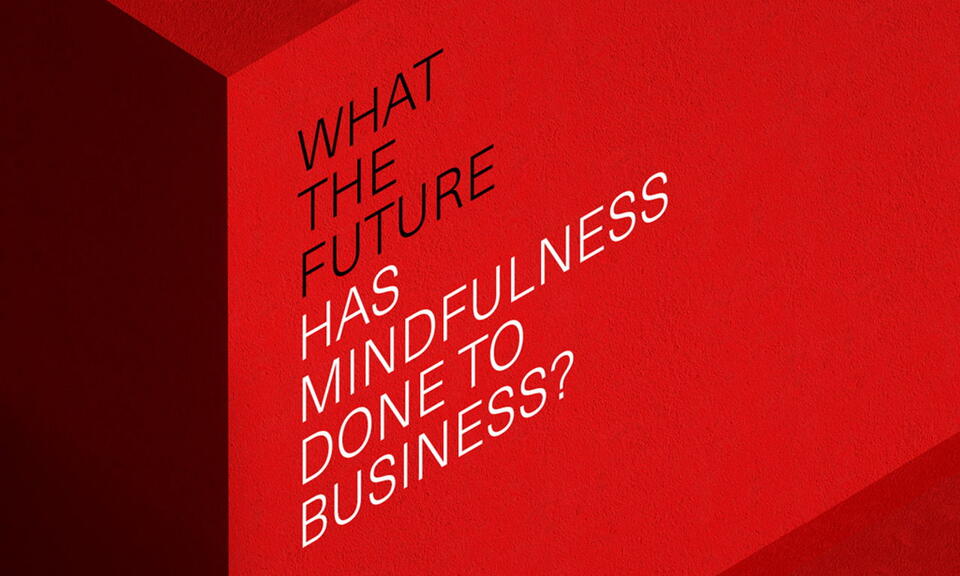
Written by
Published
Category
Key topics
Companies know that mindfulness can reduce anxiety and stress among employees – but it can also affect the way workers interact with each other
Mindfulness at work is nothing new – big companies have been encouraging it for the last decade. But maybe they didn’t realise the extended benefits – we’ve discovered that people become more generous and helpful towards their colleagues after a short and simple mindfulness exercise. And this could be a significant innovation.
Mindfulness could be particularly helpful during the lockdown we are all currently experiencing due to the coronavirus pandemic – a situation which will understandably see an increase in stress levels for many and test our willingness to help others.
We’ve known for years that mindfulness “works”. Some 60 per cent of businesses already offer employees some sort of yoga or meditation, according to a 2019 US survey. Thousands of Google employees have undergone the "Search Inside Yourself" programme, which is based upon meditation and the course boasts long waiting lists. Companies from Spotify to Goldman Sachs all offer mindfulness in some form.
What is mindfulness? Originally rooted in Buddhism, mindfulness has come to mean a sort of non-judgemental awareness of the present, unconcerned by the immediate past or the future. Used at work, it’s been proven to cut anxiety and stress, and help people become more productive and engaged.
Simple short interventions
Previous studies have focused on the effects of long term courses of up to two months, or week-long retreats for instance. Our work demonstrates results after short, non-spiritual exercises which focus on breathing exercises – following instructions from a simple audio recording. And we’ve focused on peoples’ behaviour towards each other rather than their productivity.
How did we do this? With a mix of experiments and field research. When employees at a US insurance company call centre were asked to follow the mindfulness exercises for a few minutes every day for a week, they became more helpful towards their colleagues.
We backed up these results with more field research at an Indian IT consulting company. Colleagues who took part in the same brief breathing meditation were rated by other employees. And those who took part were described as more helpful than those who hadn’t experienced the exercises.
Employees who'd undergone mindfulness were more likely to show compassion and generosity towards their colleagues.
A third experiment – based on employees recruited via alumni of a South Asian business school – looked at how much money they would in theory donate to their colleagues in case of financial distress – this is a typical dilemma used in social experiments.
Imagine we told them they’d been awarded a $1,000 bonus – would they share their earnings with a colleague who was hard-up? We found that employees who’d followed mindfulness techniques were more likely to show compassion and generosity towards their colleagues. When people are focused on the present, they are less concerned about money.
Even these short interventions to make people more aware of the moment can lead to more positive, helpful and generous behaviour.
So what are the benefits of mindfulness for individuals and businesses? Although mindfulness is widely used by businesses, they haven’t always understood the mechanisms nor the consequences – and we’re trying to improve this understanding. To date, businesses use mindfulness to improve productivity, and for better mental health.
Benefits to wider society
Knowing the benefits of this short intervention, could businesses use simple mindfulness interventions every day reduce employee stress, and improve relations between employees and with their customers? Businesses today come under scrutiny because of a cavalier approach to customers and other people affected by them – is it too far-fetched to believe the positive effects of this type of mindfulness intervention could spill over into wider society?
I guess this depends on the nature of a business. And if the effect is to make employees kinder and more generous, this might bizarrely have a negative effect downstream – businesses also want people with ambition. If the result of mindfulness in the longer term is the loss of self-interest, maybe they’d be nicer colleagues - but would they lose their drive?
This article draws on findings from the paper "Helping people by being in the present: Mindfulness increases prosocial behavior" by Andrew C. Hafenbrack (University of Washington), Lindsey D. Cameron (University of Pennsylvania), Gretchen M. Spreitzer (University of Michigan), Chen Zhang (Tsinghua University), Laura J. Noval (Imperial London) and Samah Shaffakat (Liverpool John Moores University).
This article was amended on 6 April 2020 to reflect the coronavirus pandemic.




